All Stories
-
 Health & Medicine
Health & MedicineThe U.S. now has a drug for severe frostbite. How does it work?
Iloprost has been shown to prevent the need to amputate frozen fingers and toes. It’s now approved for use to treat severe frostbite in the U.S.
-
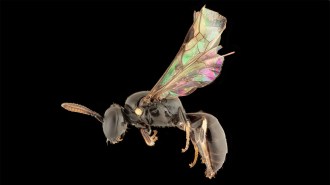 Animals
AnimalsA decades-old mystery has been solved with the help of newfound bee species
Masked bees in Australia and French Polynesia have long-lost relatives in Fiji, suggesting that the bees’ ancestors island hopped.
-
 Health & Medicine
Health & MedicineFour years on, the COVID-19 pandemic has a long tail of grief
Researchers are studying the magnitude and impact that grief from the COVID-19 pandemic has had and will have for years to come.
-
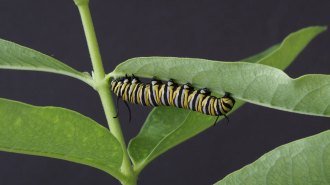 Animals
AnimalsBig monarch caterpillars don’t avoid toxic milkweed goo. They binge on it
Instead of nipping milkweed to drain the plants’ defensive sap, older monarch caterpillars may seek the toxic sap. Lab larvae guzzled it from a pipette.
By Susan Milius -
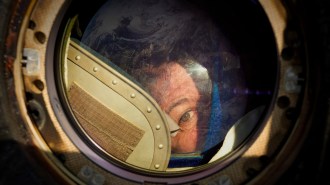 Space
Space‘Space: The Longest Goodbye’ explores astronauts’ mental health
The documentary follows NASA astronauts and the psychologists helping them prepare for future long-distance space trips to the moon and Mars.
-
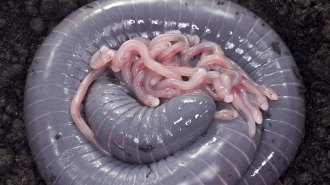 Life
LifeThis is the first egg-laying amphibian found to feed its babies ‘milk’
Similar to mammals, these ringed caecilians make a nutrient-rich milk-like fluid to feed their mewling hatchlings up to six times a day.
By Jake Buehler -
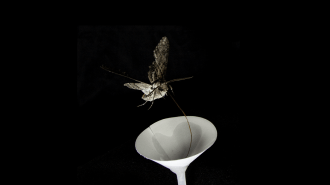 Environment
EnvironmentHow air pollution may make it harder for pollinators to find flowers
Certain air pollutants that build up at night can break down the same fragrance molecules that attract pollinators like hawk moths to primroses.
-
 Particle Physics
Particle PhysicsForests might serve as enormous neutrino detectors
Trees could act as antennas that pick up radio waves of ultra-high energy neutrinos interactions, one physicist proposes.
-
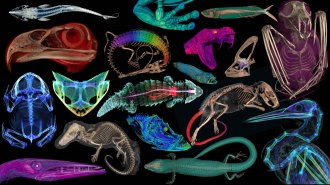 Animals
AnimalsSee 3-D models of animal anatomy from openVertebrate’s public collection
Over six years, researchers took CT scans of over 13,000 vertebrates to make museum collections more easily accessible to researchers and the public.
-
 Physics
Physics‘Countdown’ takes stock of the U.S. nuclear weapons stockpile
Physicists grapple with their role as stewards of the United States’ aging nuclear weapons in the new book by Sarah Scoles.
-
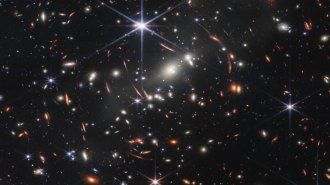 Space
SpaceDid the James Webb telescope ‘break the universe’? Maybe not
There’s no need for strange new physics to explain anomalously bright, massive galaxies seen by JWST, Hubble data suggest.
By Adam Mann -
 Health & Medicine
Health & MedicineThe blood holds clues to understanding long COVID
A growing cadre of labs are sketching out some of the molecular and cellular characters at play in long COVID, a once-seemingly inscrutable disease.
By Meghan Rosen